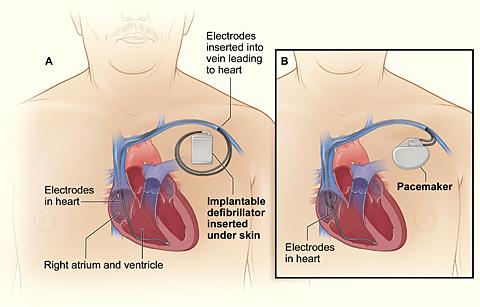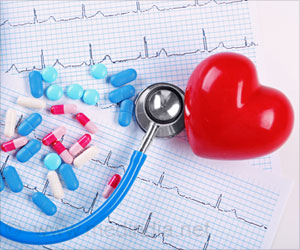A question I am often faced with while talking to my patients is “Do I really need to take so many medicines doctor?” and my answer to them is “Each one of these drugs has a specific action in your body, let’s first get you to understand them better and then see how we can reduce them.”
Antithrombotic or blood thinning drugs
These drugs work by reducing clot formation in the blood vessels (anticoagulants such as heparin or warfarin) or preventing the clumping of platelets in the arteries (antiplatelet drugs). They are usually referred to as ‘blood thinners’. You are prescribed this group of drugs if you have had a heart attack, stroke, transient ischemic attack, coronary artery disease, peripheral artery disease, an angioplasty, a bypass surgery, congenital heart disease or a valve replacement procedure.
Commonly used blood thinners are:
- Aspirin (eg. Ecosprin)
- Clopidogrel (eg. Deplatt, Clavix)
- Ticagrelor (eg. Brilinta, Axcer)
- Dual antiplatelet therapy is a combination of aspirin and clopidogrel (eg. Clopitab-A, Clavix-AS)
- Vitamin K antagonist (eg. Acitrom)
The main side effect of taking blood thinners is bleeding. You have to report to your doctor if you have any symptoms of bleeding like excessive tiredness, sudden weakness, blood in stools, dark coloured stools, blood in urine or excessive menstrual bleeding. Elective procedures (such as tooth extraction, cataract surgery, urological procedure etc) should be done with the advice of the treating cardiologist.
Antihypertensive drugs
There are several classes of drugs used to lower the blood pressure. The commonest are
- Diuretics – that is ‘water pills’ that causes you to make more urine (eg. Lasix, Tide Plus, Dytor)
- Drugs that act on the Renin-Angiotensin-Aldosterone system – they act on the hormones that raise blood pressure and block them and are particularly important in the treatment of diabetic patients with high blood pressure (eg. Pinom, Repace, Cardace, Zestril)
- Calcium channel blockers – work by blocking the entry of calcium into the cells of heart and blood vessels and hence reduce blood pressure (eg. Amlong, Cilacar)
- Beta-blockers – reduce blood pressure as well as the workload on the heart by blocking the beta-receptors in the heart and blood vessels (eg. Starcad, Cardivas, Nebicard)
- Several drug combinations of the aforementioned drug groups are available in the market
The side effects of antihypertensive drugs include low blood pressure, slow heart rate, swelling of feet etc. and the symptoms may be giddiness, breathlessness, and fatigue (to mention a few).
Antidiabetic drugs
As diabetes and cardiac problems often coexist in the same individual, drugs to lower the blood sugar are a common feature of a cardiac prescription. The two main groups are oral antidiabetic drugs and Insulin injections. Some commonly used drugs are:
- Biguanides like Metformin (eg. Obimet, Glycomet) – work by reducing glucose production in the liver and increasing the uptake of sugar by peripheral cells like skeletal muscle. It is the first drug to be prescribed in a newly diagnosed diabetic patient along with dietary modification and exercise regime.
- Sulfonylureas like Gliclazide, Glimepiride (eg. Amaryl, Diamicron) – act as insulin secretagogues and increase the insulin production in the pancreas.
- Glitazones, Voglibose, Vildagliptin, Empagliflozin etc. are some other oral drugs used to control blood sugar levels.
- Insulin comes in various forms such as rapid-acting, short-acting, intermediate-acting, long-acting and pre-mixed forms.
The main side effect to watch out for is hypoglycemia or low blood sugar (<70mg/dl), which manifests as giddiness, shakiness, anxiety, hunger, irritability, sweating, palpitations, and if the hypoglycemia worsens as confusion, slurring of speech, blurred vision, seizures and loss of consciousness.
Cholesterol-lowering drugs
Statins are commonly prescribed drugs (eg. Atorvastatin, Rosuvastatin) that help to eliminate excess cholesterol from the body. Muscle weakness, body pain and altered liver function are some common side effects of statins.
Antifailure drugs
The heart’s function or ability to pump blood may be reduced as a result of coronary artery disease, heart muscle disorder, valve problems of the heart and some other causes too. Many drugs described in the antihypertensive section are used to treat heart failure; Digoxin (eg. Lanoxin) is also used in the intravenous or oral route.
Antiarrhythmic drugs
When the heart beats too fast or too slow, doctors recommend drugs to reduce the abnormal heartbeats (eg. Cordarone) or artificial pacemaker to increase the very slow heart rate. There are several drugs in this group.
Nutritional Supplements
Vitamin tablets, iron supplements, omega fatty acids, resveratrol etc. are prescribed to support the nutritional requirements of cardiac patients.
Device therapy (eg. ICD, CRT-d, LVAD) is recommended for individuals in addition to medical management when warranted. End-stage heart failure can be managed by heart transplantation procedure when a suitable donor becomes available.
With this overview of medications and management of heart disease, we hope you are better equipped to help yourself or your loved ones. This should prompt you to keep a medication diary wherein your current prescription drugs are listed out and any changes to them or any side effects are noted down. Also, remember that alcohol is best avoided while on heart meds as it interacts with many drugs and can cause harm by reducing the potency of the drug and/or increasing the unwanted side effects.
Better control of your risk factors through healthy lifestyle changes is a definite way to reduce the dosage and number of drugs. However, changes should only be made after consulting your physician.
